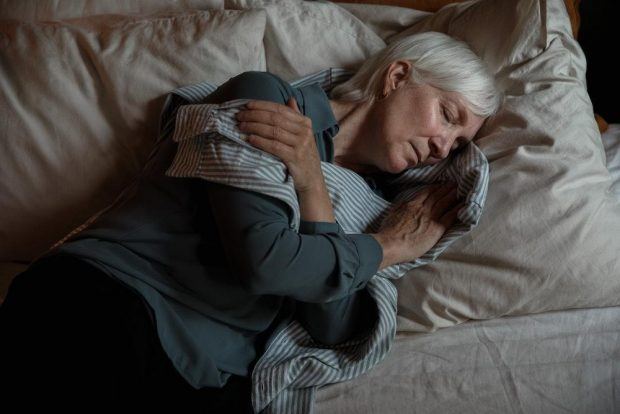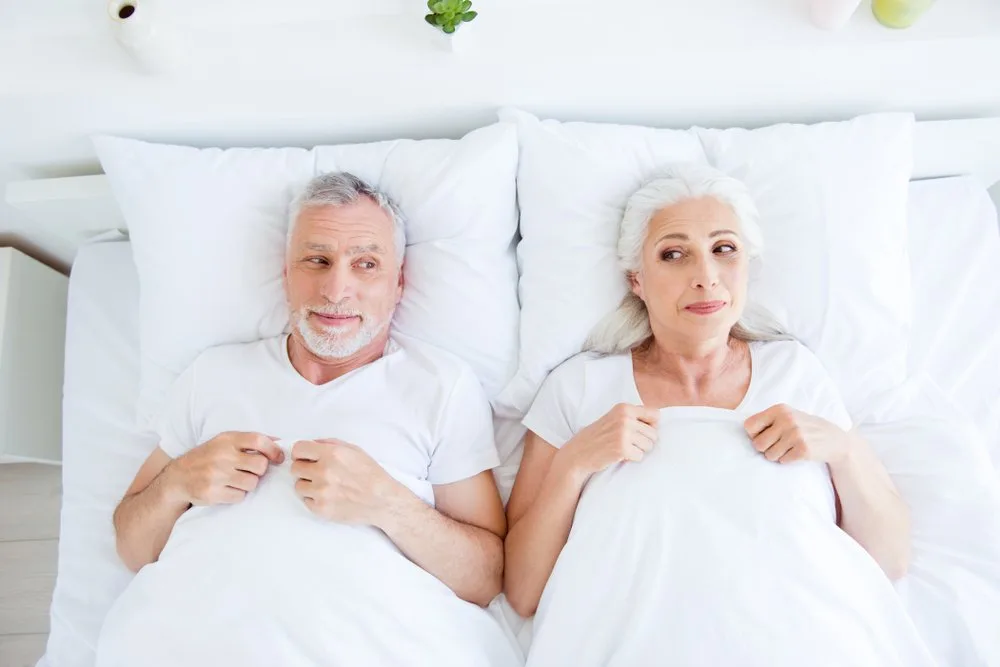The wise say a well-rested head is a key to a balanced, healthy life. If you’re getting enough sleep, you’ll most likely ready to take on any and every physical, mental, financial, spiritual, or emotional storm that comes your way.
With that said, having a well-rested head isn’t easy, especially as you get older. The consequences of lifelong stress and hard work begin taking their toll on their health eventually. It becomes too difficult to get eight hours of peaceful sleep.
How so? Well, that’s what we’ll be explaining below. You’ll learn:
- Major causes of sleep disruption in the elderly
- Effects of age on sleep
- Tips to sleep better for the elderly
What disrupts sleep in the elderly?
To understand the effects of age on the sleep of the elderly, you ought to understand the mechanism of sleep and the factors disrupting it.

Photo by RODNAE Productions from Pexels: https://www.pexels.com/photo/an-elderly-woman-lying-on-the-bed-8865671/
There’s a mechanism in our body known as the circadian rhythm or circadian cycle. It is our internal biological clock that controls the sleep-wake cycle. It determines the release of certain hormones and when you feel hungry.
Also, it is essential to note that controlling and affecting the circadian rhythm comes from the external environment. For example, your eyes are accustomed to receiving plentiful and bright light during the daytime, so you do not feel sleepy. But at night, when there’s little to no light or when it’s quiet all around, you feel sleepy.
As a person ages, the body undergoes wear and tear. The organs and organ systems responsible for the circadian rhythm deteriorate. Thus, impacting the body’s internal clock.
Now, note that deterioration is not an automated or compulsory process. If you take care of your body, you might not have to suffer any sleep deprivation or disruption in your senior age. But that’s seldom the case. Usually, health conditions like depression, heart disease, anxiety, diabetes, arthritis, and other chronic illnesses severely impact the circadian rhythm and disrupt sleep.
Sometimes the health condition impacts the sleep-wake cycle combined with its corresponding medication. For better or for worse, that’s what we’ll explore in the following sections.
Sleeping Problems in Seniors
When it comes to developing sleep problems as you age, it is not as simple as not getting enough hours of sleep. Instead, issues and disturbances develop over time, often leading to severe sleep disorders. Some common sleep disturbances observed, include phase advance, daytime napping, waking up multiple times in the middle of the night, and a longer recovery period after long hours of travel.
With that said, some common and prominent health conditions that contribute to the development of sleep disturbances are:
- Sleep Apnea
- Depression
- Daytime Drowsiness
- Nighttime urination
- Pain
- Restless leg syndrome
- REM Sleep Behavior Disorder
Tackling these may require regular medication and therapeutic treatments. However, a few precautionary measures can keep these disorders from reaching their severity (and they are listed below!)
Tips to Improve
Sleep deprivation affects your quality of life and cuts down your capabilities. Is there anything you can do about it? Are you helpless in the face of sleep loss with age? No!
You can take a few measures to help yourself and improve your quality and duration of sleep. It begins with improving your sleep hygiene.
First, develop a bedtime routine. Set up a time at which you’ll routinely go to bed. Also, find activities that’ll help you relax before you go to bed. These activities can include bathing, reading, or listening to soothing music. Apart from that, resist daytime or evening napping. If you sleep during the day, you’ll find it difficult to sleep at night.
Similarly, avoid consuming caffeinated drinks that may disrupt your circadian rhythm (like coffee and alcohol) right before bedtime.
Instead, consume foodstuff that relieves and soothes your nerves, such as a warm glass of milk, bananas, or chamomile tea. If you suffer from regular insomnia or anxiety and do not want to take certain medication, then you can opt for a more natural approach. Consider learning meditation techniques, apps or the use of a medically approved alternative like CBD gummies These watermelon-flavored gummies help fall asleep within an hour.
Final Thoughts
All in all, age is going to affect your sleeping patterns adversely. That’s one inevitable reality. But it’s not like you can’t do anything about it. Given that you keep yourself informed, you can tackle it well enough to avoid severe sleeping disorders that are likely to develop with age.



![women [longevity live]](https://longevitylive.com/wp-content/uploads/2020/01/photo-of-women-walking-down-the-street-1116984-100x100.jpg)










